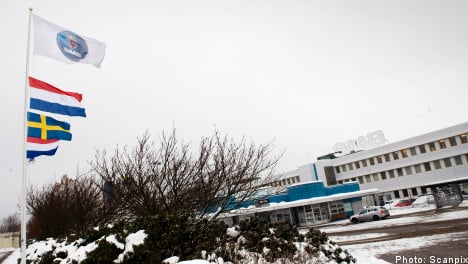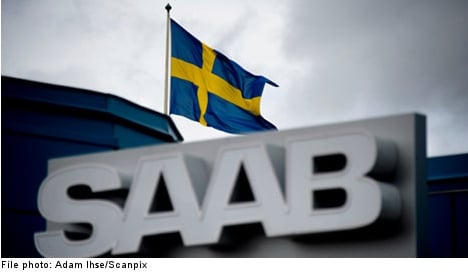TTELA, The local paper in Saab’s home base of Trollhättan in western Sweden, described local residents as filled with “a joy that is sky-high”.
“The crippling uncertainty is now over; a new era has been launched in Saab’s 60-year history as a car ‘made in Sweden’ or, as the rejected motto went, ‘made by Trolls in Trollhättan’,” reads TTELA’s editorial.
In a column, TTELA editor-in-chief Allan Johansson explains his fear that the current flood of good tidings will soon be replaced by a new wave of questions. Nevertheless, he thinks history has shown that Saab is a car brand that can survive a lot, “even [General Motors’ new hard-charging CEO] Ed Whitacre”.
Business newspaper Dagens Industri (DI) believes the time has come to give Saab CEO Jan Åke Jonsson, Saab unions, and GM the recognition they deserve.
The newspaper also showers praise on enterprise minister Maud Olofsson, something which Arbetarbladet, based in the town of Gävle on Sweden’s east coast, refused to do.
The newspaper, which is usually sympathetic to Social Democratic views, believes instead that the only thing worth noticing about the government’s handling of the Saab sale was its restraint and lack of engagement.
“Olofsson has simply never believed that Saab could be saved,” writes Arbetarbladet in an editorial.
Meanwhile, the Aftonbladet tabloid, which refers to itself as being “independently Social Democratic”, thinks that those who should feel proudest about the sale are Saab employees in Trollhättan who refused to lose their faith in the company and “continued to talk about, and work toward, a solution”.
Other newspapers pointed out that the government has now put Swedish taxpayer money at risk by agreeing to guarantee a sizeable loan from the European Investment Bank (EIB).
An analysis piece in the “independently liberal” Dagens Nyheter (DN) newspaper warns that the road ahead of Saab is still paved with uncertainty.
“If it was a challenge for Spyker to buy Saab, that was nothing compared the challenges the company will have to face down the road,” DN said.
“The company has considerably low levels of debt. New models are underway. That is good, but there are true difficulties awaiting.”
DN said Saab needed to restore confidence in the brand, raise volumes and develop green technologies.
Saab sold just 39,900 cars last year amid the global economic crisis and uncertainty surrounding the brand’s fate. That can be compared to 93,295 cars sold in 2008 and 133,000 in 2006.
In a separate editorial, the newspaper said Saab’s purchase by Spyker was “a chance and a risk,” praising the fact the “classic, Swedish carmaker got a last chance and that the employees in Trollhättan can hold onto their jobs, at least for a while.”
But DN also warned “there is reason to have doubts about Saab’s future,” noting Saab’s “longstanding and major problems,” and underlining the “rock hard competition in the auto industry.”
It said the sum of Saab’s losses over the past 10 years amounted to 27 billion Swedish kronor ($3.72 billion).
Meanwhile, the “independently liberal-conservative” daily Svenska Dagbladet (SvD) wrote in an analysis piece that it was “completely unbelievable that Saab, the underdog, has finally made it out,” warning that “if Saab is going to have a hint of a chance, many things have to fall into place.”
“Let us first be happy for the employees in Trollhättan and all Saab enthusiasts,” it said, next to pictures of smiling Saab employees in the carmaker’s hometown.
“Now Saab has a chance. But the Saab-Spyker transaction has more to do with emotions than with business logic. It is by no means an obvious (business) decision,” it said.
Swedish Radio meanwhile called the sale a “deal clinched against the odds.”
The “independently liberal” Expressen tabloid also thinks that the deal “would have been much more enjoyable if taxpayers had been left out” and argues that Olofsson ought to inform both the Riksdag and the public about the what the EIB loan guarantees look like.
The editorial staff of the Bohusläningen, another local newspaper from western Sweden, cautioned that, amidst all the euphoria, it’s important to remember that Saab has profitability problems and that competition in the car market is fierce.
Meanwhile, the liberal Gefle Dagblad points out that “It’s been decades since Saab turned a profit”.
“And it’s still too early to starting turning somersaults of happiness,” writes the newspaper, which adds that the threat of auto plants closures “is looming over the entire European auto industry”.



 Please whitelist us to continue reading.
Please whitelist us to continue reading.
Member comments